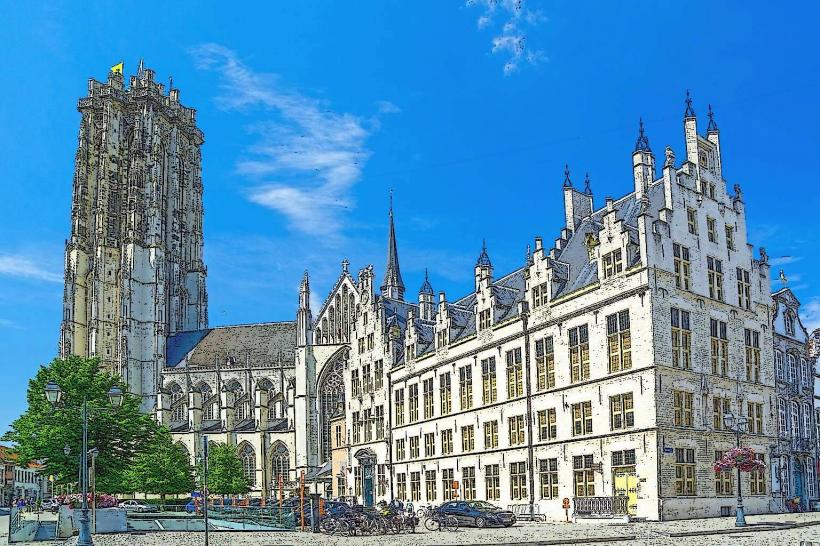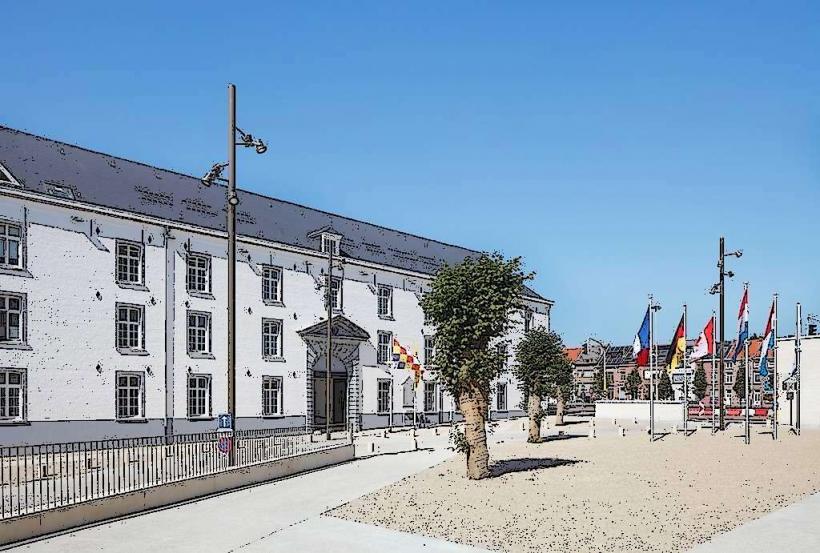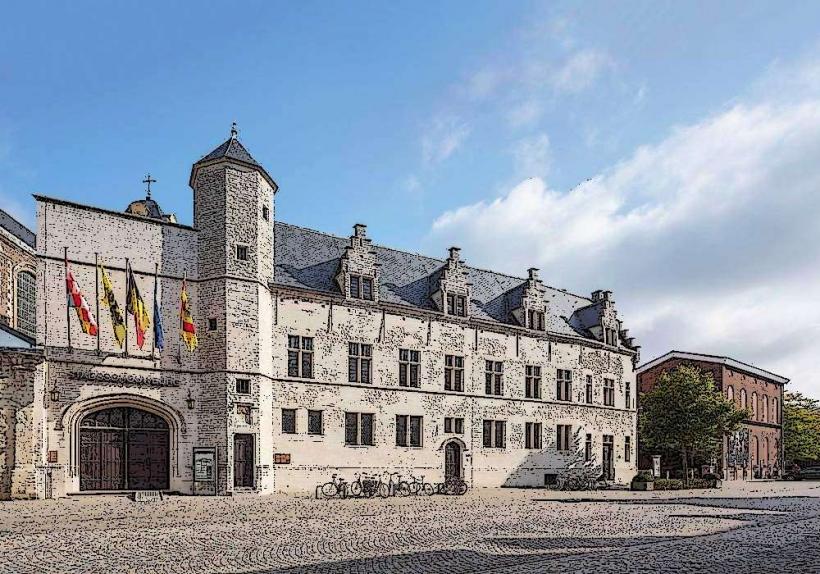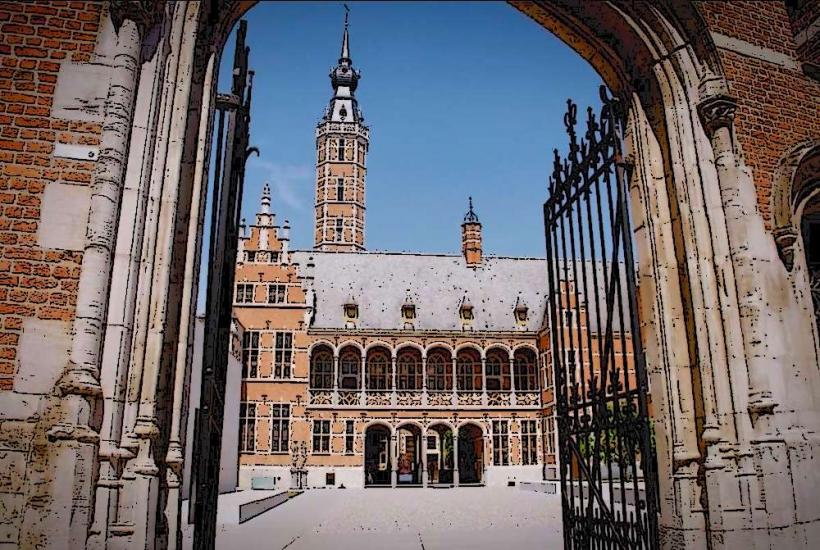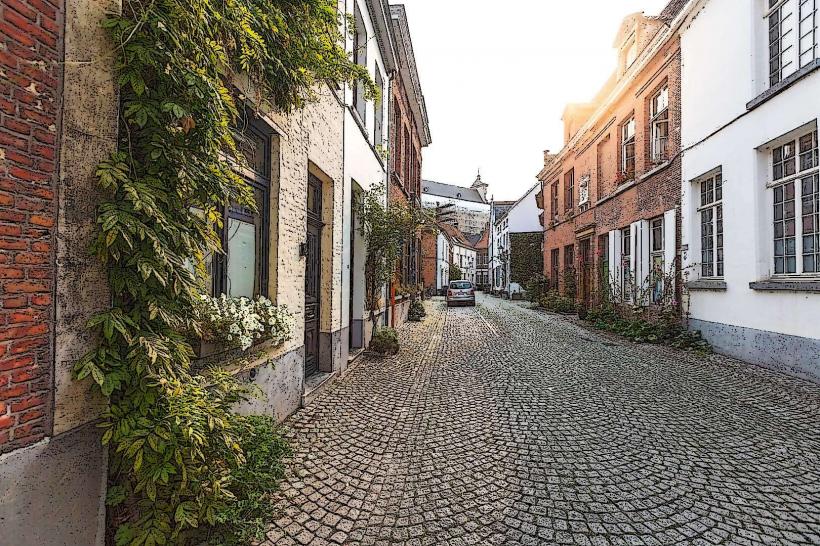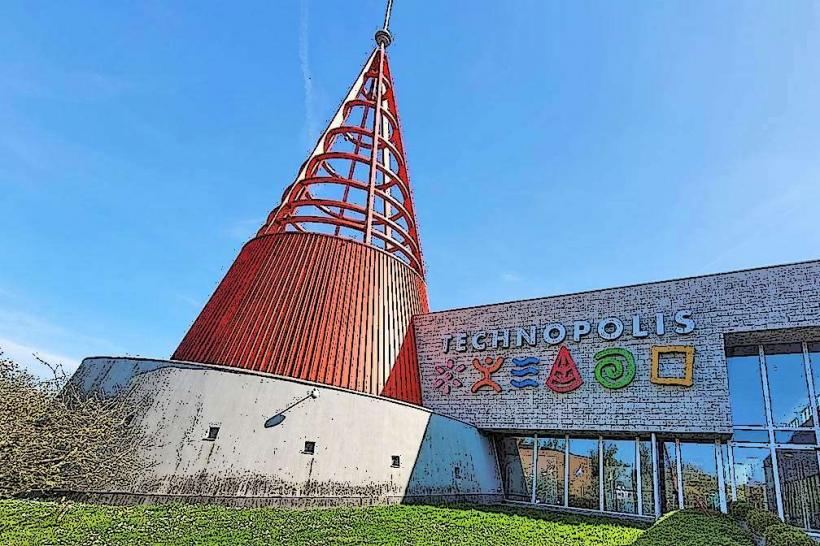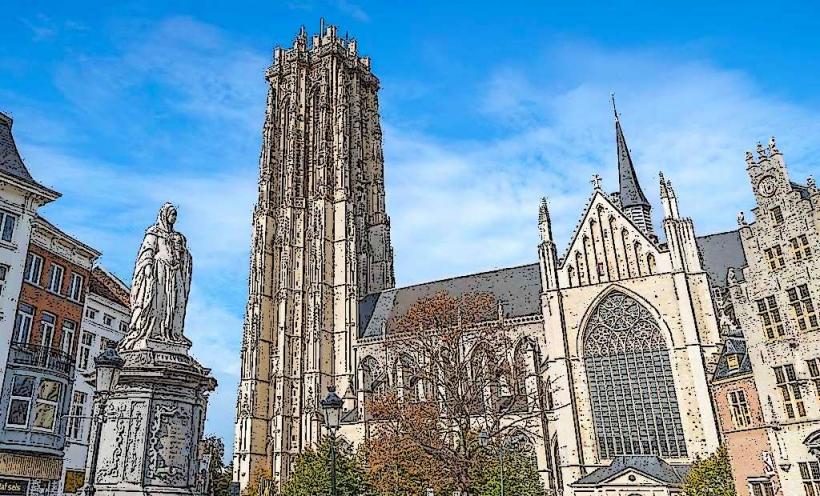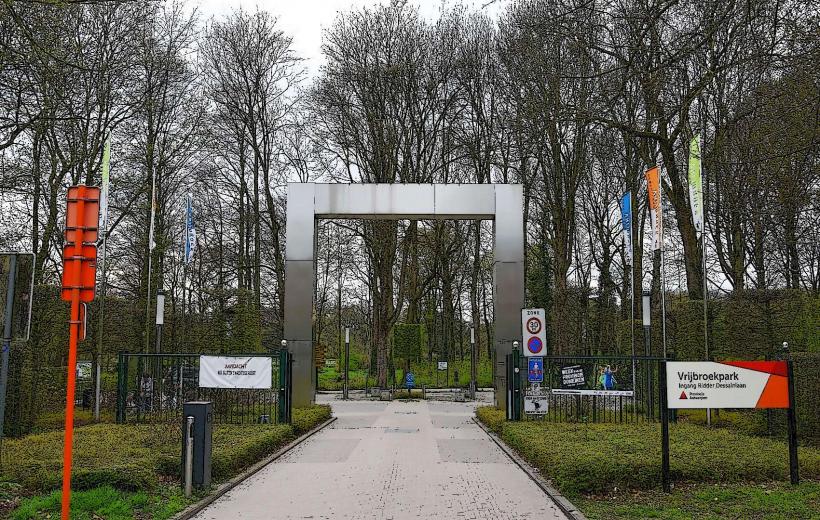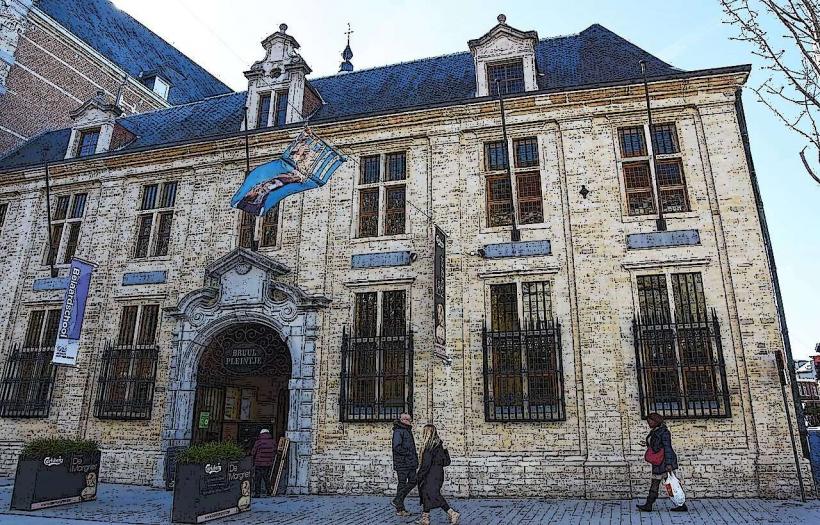Information
Landmark: Mechelen Town HallCity: Mechelen
Country: Belgium
Continent: Europe
Mechelen Town Hall, Mechelen, Belgium, Europe
The Mechelen Town Hall (in Dutch, Stadhuis van Mechelen) is one of the most important historical and architectural landmarks in the city of Mechelen, located in the Flemish region of Belgium. The town hall is not only an impressive building but also a symbol of the city's rich history and its role in the political and administrative life of the region.
Historical Background
Early History: The construction of the Mechelen Town Hall began in the 14th century, around 1370, under the reign of Duke Philip the Bold of Burgundy. The town hall has served as the administrative center for the city of Mechelen for centuries and has been central to its governance and civic life. Over the years, the building has witnessed key events in the city's history, particularly during the medieval and early modern periods.
Architectural Development: Over time, the town hall underwent several expansions and renovations, reflecting the changing architectural styles of the periods. The Gothic style was the dominant architectural form during the initial construction, with later Renaissance and Baroque elements added during various renovations.
City’s Growth: Mechelen was an important city during the Middle Ages and Renaissance, often acting as the capital of the Burgundian Netherlands and playing a key role in the politics and culture of the region. The town hall’s design and grandeur reflect the city's political significance during this time.
Architectural Features
Gothic Facade: The most prominent feature of the town hall is its Gothic-style facade, which faces the Grote Markt (Market Square) in the heart of Mechelen. The facade is distinguished by tall pointed arches, elaborate stone carvings, and decorative detailing. The design creates an imposing, yet elegant, presence, befitting the importance of the civic building.
Renaissance Additions: In the 16th century, the town hall underwent a major renovation that introduced Renaissance-style elements, including a new roof and upper floor, as well as decorative details. The addition of large windows and stylized columns reflects the influence of the Italian Renaissance on the architecture of the time.
Clock Tower: One of the most striking features of the Mechelen Town Hall is its clock tower, which rises above the building and is visible from various parts of the city. The tower houses a large carillon, a musical instrument that has been playing regular tunes since the 16th century. The clock tower has become an iconic feature of Mechelen’s skyline and a symbol of the city’s rich heritage.
Interior Spaces: Inside, the town hall boasts spacious chambers and historic rooms that have been used for municipal functions over the years. The council chambers, which were used for official meetings, remain one of the key features of the building, with intricate woodwork and painted ceilings reflecting the Renaissance and Baroque influences.
Cultural and Political Significance
Center of Governance: As the seat of the municipal government, the Mechelen Town Hall has long been the center of the city’s political life. It hosted the meetings of the city council, as well as important civic events and announcements. The town hall’s role was especially significant when Mechelen served as the capital of the Burgundian Netherlands in the late Middle Ages and early Renaissance.
Symbol of Mechelen’s Status: The construction and renovations of the town hall reflect the city’s rising political and economic status during the 16th century, when Mechelen was at the forefront of the arts, culture, and governance in the region. The impressive architecture of the town hall symbolized the city’s prestige and influence.
Historical Events: Over the centuries, the town hall has hosted a range of historical events, including important meetings, announcements, and public ceremonies. It stands as a witness to the changing tides of European politics and the evolution of Mechelen itself.
Modern Role
City Government: Today, the Mechelen Town Hall continues to serve as the headquarters for the municipal government. It is home to the offices of the mayor and city council, and it remains a vital center for the administrative functions of the city. The building is still used for important civic functions, including public ceremonies and official events.
Public Tours: The town hall is open to the public and offers guided tours that delve into the building’s rich history and architectural features. Visitors can explore both the interior chambers and the exterior of the building, including the clock tower, which offers panoramic views of Mechelen and the surrounding area. The tours provide a unique opportunity to learn about the town hall’s role in the history of Mechelen and its importance in the region’s governance.
Carillon Concerts: The carillon housed in the clock tower continues to be an important feature of the building. Regular carillon concerts are held, and the town hall’s bells still ring out across the city, a reminder of Mechelen’s historical significance.
Visitor Information
Location: The Mechelen Town Hall is located on the Grote Markt (Market Square) in the city center of Mechelen, making it easily accessible for tourists and locals alike. It is close to other notable attractions in the city, such as the St. Rumbold’s Cathedral and the Mechelen Toy Museum.
Opening Hours: The town hall is open for visits throughout the week, although visitors should check in advance for any special closures due to official functions or holidays. Guided tours are available, and it is recommended to book in advance for a comprehensive experience.
Admission Fees: There is typically a small admission fee for entering the town hall and for taking a guided tour. However, entrance may be free during special events or open days.
Conclusion
The Mechelen Town Hall stands as a symbol of the city’s rich heritage, with its stunning architecture and deep historical significance. From its Gothic origins to its Renaissance and Baroque influences, the building is a testament to the political and cultural life of the city. Today, it continues to serve as the heart of Mechelen’s civic life while also functioning as an important historical and cultural landmark for visitors. Whether you are interested in architecture, history, or local governance, the Mechelen Town Hall offers a captivating glimpse into the city’s past and present.

